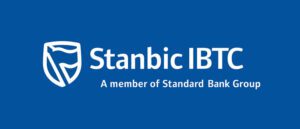
Heritage Bank, others seek adequate agric financing for finance services repositioning
Heritage Bank has affirmed that adequate agricultural financing is critical in defining Nigeria’s trade competitiveness, which guarantees sustainable agricultural systems, generates foreign exchange – a critical aspect that equips the financial sector to respond to changing market requirements and address critical sector needs for global competitiveness.
Executive Director of Heritage Bank Plc, George Oko-Oboh, disclosed this, during the Chartered Institute of Bankers of Nigeria’s (CIBN) 15th Annual Banking and Finance Conference, tagged: “Repositioning the Financial Services Industry for an Evolving Global Context” in Abuja.
He disclosed that Heritage Bank has been at the forefront of financing agric value chains that have upped its competitiveness in the global market and helping to boost local production, conserve scarce foreign exchange and enhance food security, and ultimately result in the creation of hundreds of new jobs.
According to Oko-Oboh, the bank’s involvement in the sector dated back to many years ago and it has always been at the forefront of ensuring overall growth and development of commodities products in Nigeria. For these feats, Heritage Bank disbursed the CBN’s N41billion intervention in wheat production in Nigeria for commodity associations and anchor companies.
“We have continued to create market linkages between smallholders’ farmers and Anchors/Processors, create an ecosystem that drives value chain financing, improve access to credit by the smallholders’ farmers by developing credit history through the scheme and many more.
“As a Bank, we partnered CBN and other stakeholders such as wheat farmers association of Nigeria, wheat farmers, processors and marketers’ association of Nigeria, Lake Chad Research Institute and other development partners, flour mills of Nigeria and several seed companies and others to support over 100,000 farmers in wheat production.
“Also, Heritage Bank further factored consideration of value addition of financial services and products flowing to and/or through value chain participants to address and alleviate constraints to growth that have distorted product financing, receivables financing, physical-asset collateralization, risk mitigation products and financial enhancements,” the Executive Director said.
Also, the Chairman, Union Bank of Nigeria Plc, Farouk Gumel, has said Nigerian banks must invest in modernising agriculture, helping it to be more resilient, more dynamic and better able to adapt for the banking sector to favourably compete in the evolving global context.
“Modernisation means much more than technology alone. It is also about farming techniques,” he said, adding, “To reposition the industry for a ‘Glocal context, we need also to look more inwards,” saying repositioning is not an option. “It is a necessity Nigerian has begun an agricultural renaissance over the past seven years. To be truly Glocal, we must commit the same resources and investments to rural-local customers as we have done to urban global clients.”
He agreed that the local players must keep an eye on what global happenings to stay in tune with international best practices, while asking that local/rural farmers should never be forgotten.
President/chairman of council for Chartered Institute of Bankers Nigeria, CIBN, Dr. Ken Opara, said the financial services industry needs to adapt to much faster pace of change in advancement in technology and innovation, saying services, products, and technologies that were new and useful in the past will not necessarily be so soon.
Opara said advancement in technology and innovation is bringing about another wave of revolution that will change the landscape of the financial services sector more than ever.



